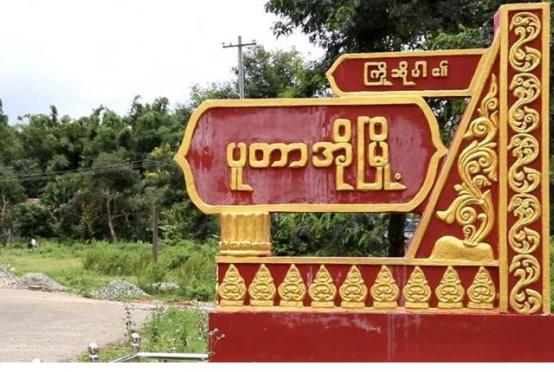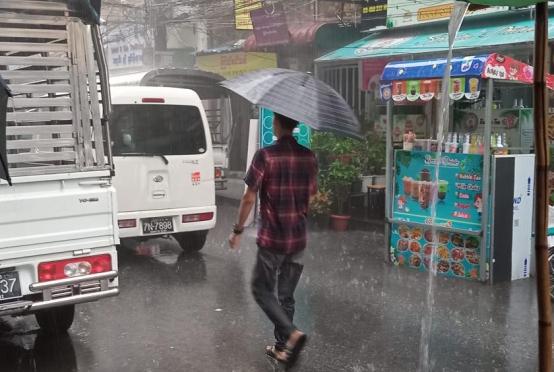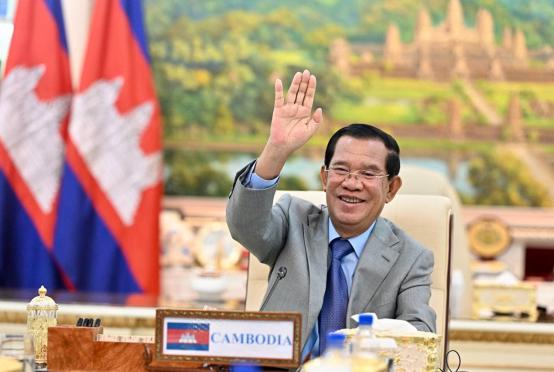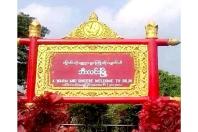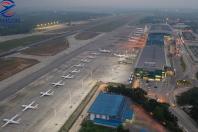Investors from countries that have signed an investment treaty with the strife-torn country can start arbitration proceedings to pursue their claims.
THE most blasé foreign investors who thought that Myanmar's emerging economy was the place to be despite the risks, are seeing the economy collapse along with their sandcastles of hope, as the post-takeover business environment has become so fraught with difficulty that they are suffering losses.
The question on many lips is: Shouldn't the government of Myanmar pay compensation for the losses, as foreign investors are protected by bilateral treaties?
The military takeover of Feb 1, 2021 has demolished the myth that military rule somehow guaranteed social stability, raising new concerns over how investors might recoup their losses, with some companies considering taking the legal route.
Consider the Myanmar law: A foreign company may be able to seek legal redressal against Myanmar for breach of an investment treaty, contract or domestic law, if its investments were harmed as a result of the military takeover, either as a direct or indirect result of the actions of the military, the government or a government-owned entity. Companies that hail from countries that had signed an investment treaty with Myanmar can start arbitration proceedings to pursue their claims, according to Lorraine de Germiny and Vincent Reynaud of the Swiss law firm Lalive in their recent article, "Coup d'etat in Myanmar - What Next for Foreign Investors?"
Myanmar had emerged as an attractive destination following reforms to its investment policy whose main features were the enactment of the Myanmar Investment Law (MIL) in 2016, and the Myanmar Investment Rules (MIR) in 2017. The country has signed bilateral investment treaties and multilateral trade agreements within the framework of the Association of Southeast Asian Nations (Asean).
EXODUS OF FOREIGN COMPANIES
Many foreign businessmen, disheartened by the takeover and the military's heavy-handed crackdown on civilian protesters, have lost faith in the country's economy that has been so severely impacted by both the military takeover and the pandemic that it is expected to shrink by 10 per cent this year.
The ruling military, however, is giving a positive spin. It does not wish to worsen the exodus of foreign companies already occurring. Early this month the Norwegian state telecom firm Telenor quit its Myanmar business, blaming the difficulties of operating under the military government, marking the departure of one of the biggest foreign investors in Myanmar. Telenor sold its local operations to a Lebanese investment firm, M1 Group, because the coup had severely restricted its mobile business, leading to a loss of 6.5 billion kroner (S$1 billion).
Major global companies and organisations are distancing themselves from the ruling military. Coca-Cola, the World Bank, and McKinsey told the BBC they have moved out or are reviewing their leases at the Sule Square complex in Yangon which is built on land owned by the military. The World Bank froze its US$2.73 billion loans to Myanmar on Feb 19 this year, and the Asian Development Bank followed suit on March 10 putting on hold its US$3.57 billion loans, both powerfully signalling their displeasure.
Facing the exodus, the military has tasked the Myanmar Investment Commission to woo new foreign investments. But there is turmoil prevailing in the investment bureau as some 80 civil servants had reportedly gone on strike and were fired in April.
The case for legal action and compensation becomes stronger for foreign investors, especially in the mining and energy industries that are facing logistical challenges, with some suspending their operations. Some of these companies have instructed local employees not to travel to their workplace or they have been unable to do so for fear of being harmed or arrested. Business activity is being hampered as much of the unrest has occurred in Yangon, Myanmar's main commercial port, thus delaying supplies and exports. Frequent Internet and telecommunication blackouts are affecting business nationwide.
Foreign investors are protected under the MIL and the MIR. First, they are protected against direct and indirect expropriations, such as seizure or transfer of property that deprive the investor of the benefit of ownership of the investment. The laws and rules forbid expropriations unless they serve a public purpose, are non-discriminatory, and are done by the payment of prompt, fair and adequate compensation. The MIL defines fair compensation as the "market value" of the investment but also considers the public interest and profitability of the investment.
The second protection is the fair and equitable treatment (FET) of investors, which guarantees investors the right to obtain information about decisions that impact them, as well as the right to due process and appeal against government measures, including changes to terms of government-granted investment licences or permits. During the takeover, by all accounts, investors were not given FET treatment.
The third protection is the "non-discriminatory treatment" of foreign investors as compared to Burmese nationals (who are accorded preferential national treatment anyway). It is possible that these protections were not properly extended to all foreign investors. The fourth protection is the right to freely transfer funds from investment activities, subject to certain conditions.
ARBITRATION PROCESS
Further, any disputes between foreign investors and the State are to be resolved cordially through the Investor Grievance Mechanism, which was set up in 2020. If they fail to settle the dispute, investors may bring claims through arbitration, the national courts, or mechanisms provided by investment treaties. Yet, there are serious concerns about the arbitration process because the enforcement of an arbitral award may be refused if it "would be contrary to the national interests of the State", according to the rules.
The legal analysts Lorraine de Germiny and Vincent Reynaud argue that "Myanmar has a poor track record in terms of the rule of law and the takeover has demonstrated the precarity of its legal institutions". Still, they believe that "Myanmar's international legal obligations provide a firmer basis for foreign investors to seek redress for interference with their investments".
Myanmar has recently signed a raft of global agreements providing protections to foreign investors both on a bilateral basis and as part of Asean. It has signed 11 bilateral investment treaties, eight of which are in force, with China, India, Israel, Japan, Korea, Philippines, Thailand and, most recently, Singapore. These bilaterals offer protections commonly provided to foreign investors.
To further protect foreign investors from the harm of physical violence resulting from civil unrest, Myanmar has committed to ensuring full protection and security (FPS), whether the violence stems from third parties or the State itself, guaranteeing that the State will remedy any such harm. The FPS requires "each party to provide the level of police protection required under customary international law".
The bilateral investment treaty makes the host State responsible for providing restitution or compensation, or both, if investors suffer loss "resulting from the … destruction of the investment or part thereof of the investor by the latter party's (government) forces or authorities, which was not required by the necessity of the situation".
Given the challenges of operating in such a political climate, foreign investors would want to tread carefully in the future.
The writer is the editor-in-chief of the Rising Asia Journal.





